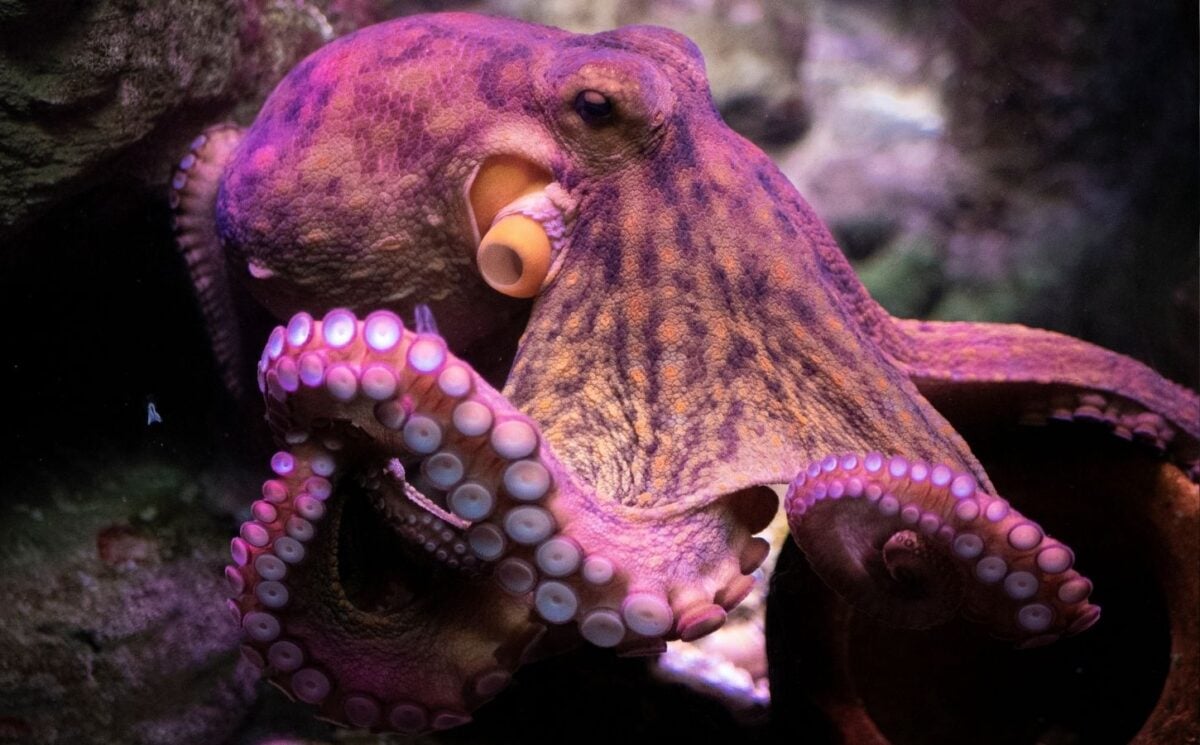California is set to become the second US state to ban octopus farming and the first to ban the sale, possession, or transportation of farmed octopus. The bill has passed through the senate, and will soon become law.
Read more: The ‘World’s First’ Octopus Farm – Everything You Need To Know
The legislation describes octopuses as “highly intelligent, curious, problem-solving animals.” It acknowledged the threat to their welfare posed by being farmed and well as the additional pressure feeding them would put on wild fish populations.
“This law is another signal to companies and entrepreneurs that octopus farming is a bad investment,” said Compassion in World Farming.
Washington State passed a ban on octopus farming in the state in March. Though there were no plans to start octopus farming there, campaigners said it “shows the growing global support that exists for a ban on octopus farming.”
Read more: Protestors Unite Around The Globe To Stop The World’s First Octopus Farm
The growing threat of octopus farming

Spanish seafood company Nueva Pescanova has had plans to open the world’s first intensive commercial octopus farm in the Canary Islands for several years. But the project has been met with significant public protest and several setbacks. The Canary Islands government rejected the environmental assessment submitted by Nueva Pescanova earlier this year. The assessment reportedly lacked basic information about the potential impact of the farm on the environment and public health.
An octopus farm was already in operation in Hawaii until it lost its permits in 2023. Though it marketed itself as a conservation facility, an investigation by animal activist Laura Lee Cascada revealed Kanaloa Octopus Farm to be little more than a petting zoo. The owner appeared to have plans to eventually sell farmed octopus for food. Kanaloa says it is now in the process of moving to a different site and reopen in future.
Legislation to ban octopus farming is currently under consideration in Hawaii.
The only other known octopus farm is in Mexico, where octopuses are bred meat. Researchers at the farm are trying to work out how to reduce the high mortality rate of octopuses bred in captivity.
This article was updated on September 4, 2024. An earlier version of this article stated that the bill to ban octopus farming had already been signed into law, but it’s still awaiting official sign-off.
Read more: Octopus Farming: Why It’s A Travesty For Animal Welfare And The Environment






